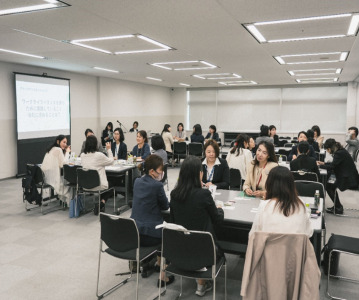Growing domestic manufacturing creates new opportunities for international pharma in the Middle East

Opportunities abound at CPHI MEA and experts anticipate regional generic companies acting as CMOs for international companies looking to enter the region.
CPHI Middle East expert Emad Shabbir, Director at EMAD Trade House, states favorable conditions and legislative regulations in Saudi Arabia are resulting in a boom of manufacturers and CMOs partnerships with international pharma companies. With the strategic cooperation between regional generic companies and multinational pharma companies, driving increased local production.
Experts believe ahead of the second CPHI MEA (16-18 September 2019) – where nearly 4,900 professionals from over 270 companies will attend – the opportunities in the region are rapidly opening up. “We are witness to this trend first hand, as CPHI MEA is already one of the fastest growing editions in the CPHI series, with an increasing number of international attendees looking for manufacturing partners. Similarly, we’re seeing a rise in ingredients suppliers targeting the region, and the supply chain here is maturing quickly. There are tremendous opportunities in the MEA pharma market, but with such complexities, it’s vital we act as a platform to facilitate connections between regional and multinational companies,” commented Cara Turner, Brand Director at Informa.
Shabbir identified in the GCC (Gulf Cooperation Council) region, there are 35-40 medium-sized pharma manufacturers, with at least 10-15 new plants being built. These manufacturers are working with a wide range of products, with a big focus on biotechs and biosimilar products. Areas highlighted for potential further growth are antibiotics, injectables, IV solutions, and dry powder inhalation.
“In Saudi Arabia, almost every generic producer is also acting as a CMO but there are no dedicated CMOs. This has led large multinational companies, who want to trade in the Middle East market, to either set up their own manufacturing facilities or to use local generic companies as CMOs.” added Shabbir.
As a consequence, Shabbir predicts a rise in partnerships in the GCC between local generic companies and multinational pharma companies as means to reduce financial costs and increase efficiency. Currently, a lot of multinational companies already have marketing and sales offices located in the Middle East, providing them with a good understanding of the market. Governments in the region are pushing for increased local manufacturing with imported drugs suffering from high tariffed premiums. This leaves international companies with two options; either building their own manufacturing facilities and selling the product on the market on their own or partnering with local CMOs. The latter represents a quicker route to market for international companies and many are turning to generic companies in the region acting as CMOs.
Shabbir states that Saudi Arabia is still the central pharmaceutical market in the Middle East because of the high demand for drugs as a result of government tendering. Currently, Saudi Arabia government purchases big contracts of products in bulk, and then distributes the drugs to their hospitals, pharmacies, and other Middle Eastern Countries. By creating a system in which they buy in bulk, manufactures target Saudi Arabia. Additionally, the government has made regulations and toll duties on imported drugs, encouraging products from local manufacturers. As the government has a close interaction with pharma companies, it does guarantee a good standard as the Saudi FDA enforces a strict regulation and compliance terms.
“With the lack of local APIs, there is a greater demand for ingredient providers from API mainstays China and India, as well as providers from regions such as Korea and Europe. Interestingly, there is an increasing number of manufacturers from Central Asia and North Africa coming to CPHI MEA looking for ingredients partners, so it’s very much become a regional hub now.” Added Turner.
CMOs are supplying outside of GCC to Yemen, Iran, and Syria, and hoping to expand to South Africa. Presently, they are not supplying to self-sufficient countries such as Turkey and Egypt, but there might be future opportunities for trade in Europe.
Related News
-
News Women in Pharma: Career Design for Women
Our monthly Women in Pharma series highlights the influential lives and works of impactful women working across the pharmaceutical industry, and how the industry can work towards making the healthcare industry and workplace more equitable and inclusive... -
News Pfizer may shift production back to US under Trump pharma tariffs
At the 45th TD Cowen annual healthcare conference in Boston, USA, Pfizer CEO Albert Bourla outlined the potential for Pfizer to shift its overseas drug manufacturing back to the US as pharmaceutical industry players weigh their options against Presiden... -
News Women in Pharma: Connecting accessible pharma packaging to patients – a Pharmapack Special
Throughout our Women in Pharma series, we aim to highlight how CPHI events encourage discussions around diversity, equity, and inclusion initiatives in the pharmaceutical industry. -
News CPHI Podcast Series: Packaging expert perspectives at Pharmapack 2025
This month's podcast episode sounds a little different, covering the latest event in Paris – Pharmapack 2025. Digital Editor Lucy Chard speaks to several experts direct from the floor of the show, bringing you right in on the action.&nbs... -
News Closing 2024 with Editors' picks of top articles from the past year
Coming to the end of 2024 and it’s certainly been a busy year, for CPHI and for the rest of the pharmaceutical and healthcare industry. Topics of conversation throughout the last 12 months have been varied, touching on the technical, to the polit... -
News SCHOTT Pharma’s sustainable journey with CPHI
Sustainability is of paramount importance in the pharmaceutical industry. See how a recent partnership between CPHI and SCHOTT Pharma has helped to highlight and accelerate their sustainability journey to reach global goals. -
News CPHI Podcast Series: Investing in a vision for the future of life sciences
In this episode Lucy Chard is joined by Rajiv Khatau to discuss the importance of looking into new therapeutic areas and some of the more niche areas of pharmaceuticals, and investing in the future of the industry. -
News Lessons from CPHI Milan 2024: Sunny Intervals for Pharma Manufacturing?
As the 2024 CPHI conference wrapped up in Milan, we caught up with L.E.K. Consulting – a global strategy consulting firm with deep expertise in pharma manufacturing – to discuss evolving market perspectives and business outlook.
Position your company at the heart of the global Pharma industry with a CPHI Online membership
-
Your products and solutions visible to thousands of visitors within the largest Pharma marketplace
-
Generate high-quality, engaged leads for your business, all year round
-
Promote your business as the industry’s thought-leader by hosting your reports, brochures and videos within your profile
-
Your company’s profile boosted at all participating CPHI events
-
An easy-to-use platform with a detailed dashboard showing your leads and performance







